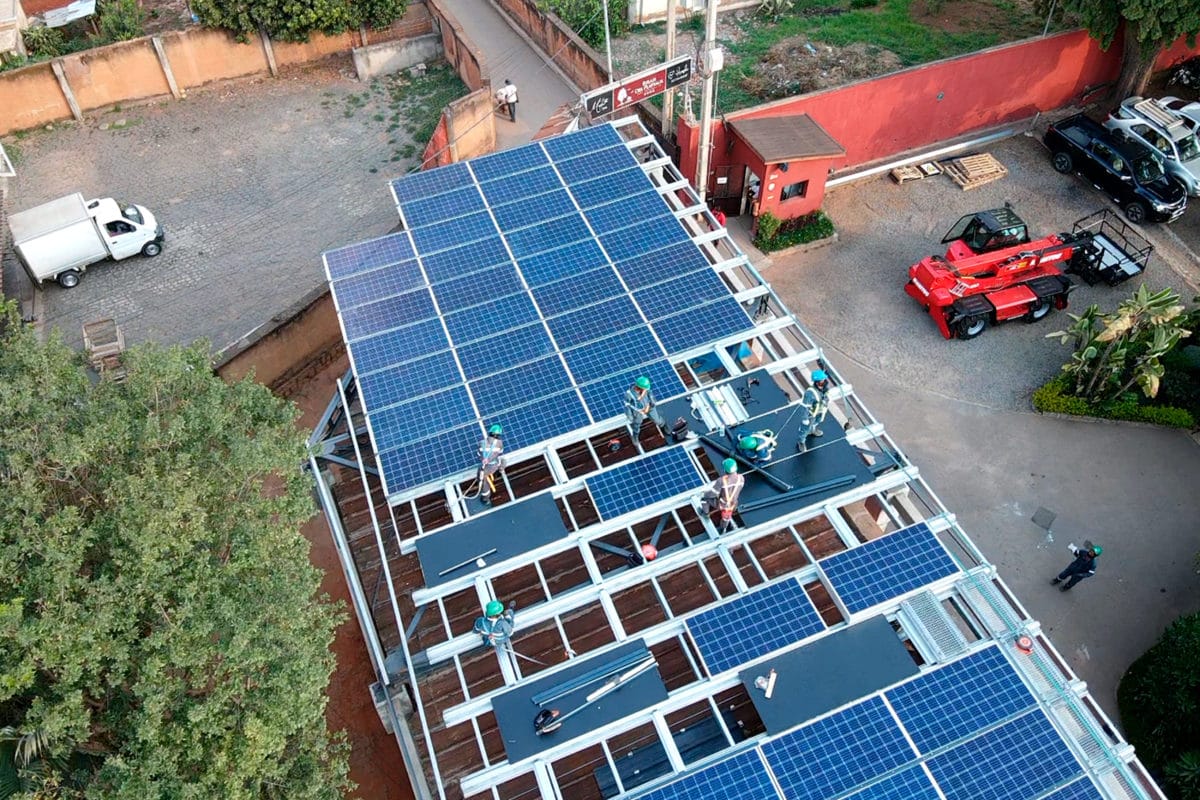With Chinese solar giant JinkoSolar having warned customers about rising PV panel prices last month, pv magazine has spoken to two African installers who have been feeling the pinch as costs have escalated since last summer.
Jasper Graf von Hardenberg, CEO of Lagos-based Daystar Power, said he has had to go back to clients who have not signed off his company's quotes to renegotiate the price for solar electricity, and Madagascan counterpart Hery-Zo Rajaobelina said he will be forced to extend the leasing contract periods he negotiates with customers.
Jinko, in an uncredited post on the website of trade body the Africa Solar Industry Association, last month warned rising polysilicon prices and an historic shortage of shipping containers, compounded by customs clearance delays suffered because of Covid-19 disruption, would force prices up until at least mid June.
Warning
“The module makers eventually cannot bear the cost pressure any more, which is transmitted from the upstream sector as material shortages [continue] to ascend,” read the Jinko statement. Those input and logistics cost pressures have driven prices for mainstream monocrystalline silicon panels as high as RMB1.78/W ($0.27), said the manufacturer, adding: “The turbulence of the solar PV supply chain will last at least three months or longer, [until] supply and demand will further improve and rebalance again.”
Von Hardenberg, whose company installs solar for commercial and industrial clients in Nigeria, Ghana, Senegal and Togo, said the price hikes have been occurring since last summer.

Image: Daystar Power
“For us there have been two drivers of price increases: equipment costs and freight,” he said. “In July, we would have paid $0.20/Wp. That same panel price rose 15% by the end of 2020. The equipment price has since relaxed, it is not back to July levels but is maybe 7-8% higher than in July.
“For freight … that’s shocking, what happened there, I think. The cost of shipping a container from China to West Africa has increased by a factor of five or six. So if we paid $2,000-3,000 in July, it cost $10,000-15,000 by December. These two, combined, result in significant price increases.”
Renegotiation
With panels representing only part of total solar project costs, that 20% PV module price rise has translated into a 5% rise in project costs for Daystar. The installer will absorb the costs on contract offers it has signed with customers, said the CEO but, since December, unsigned quotes have had to be renegotiated.
“We had to look at all our project pricing in December and we had to go back to some clients and say ‘we can’t do our original price any more,’” added Von Hardenberg.
Rajaobelina, of Madagascar-based GC Solar SA has faced a similar dilemma, and told pv magazine: “It's up to us and our partner; either to decrease our margin or to increase the length of the leasing contract [offered by GC Solar to the customer].”
Popular content
He anticipates future leasing deals – under which the installer adds the rooftop solar system and sells the electricity generated to the client – will have a duration of 10-12-years, rather than the typical eight-year term which GC Solar has offered to date.

Image: GC Solar SA
In Rajaobelina's case, at least the full impact of the panel price rises is yet to kick in. “For our projects, generally the providers used to send out their previous stock, so we can manage with that,” he said. “For future projects, the suppliers have put the prices up. For projects we install now, we use solar panels which have cost around $1.30/W but for future projects, for the end of this year, we have seen that become around $1.40-1.45/W.”
Daystar chief Von Hardenberg found a partial workaround by paying directly for shipping and said: “It’s surprising that a small company in West Africa can get better freight costs than a big multinational, so I suspect there is some margin there for [the solar manufacturers].”
Shipping costs
GC Solar already bought its panels at factory-gate prices and paid for shipping itself. Administrator-general Rajaobelina accepted the current punishing shipping costs are a result of the Covid-19 crisis, a situation which, in theory, should ease once the global vaccination effort starts to take effect. Asked about the prospect of prices coming back down at some point, he smiled wryly and took a drag on his cigarette, before adding: “Those prices won't come back down.”
In terms of the wider impact of more expensive panel prices on the roll-out of African solar, both company bosses were sanguine, albeit with different rationales.
Finance
For Von Hardenberg, the fact other solar project components, such as inverters and batteries, are continuing to benefit from cost falls means solar will continue to remain competitive in West Africa. Besides, he explained, wildly fluctuating local currencies and rates of inflation, plus costly finance add up to ensure unpredictable costs are par for the course in Africa. Things are improving at least on the latter point, he said, adding: “Three years ago, if you tried to get a loan from a Nigerian bank for solar, they would say ‘Solar? I can’t use that as collateral.’ Now they are much more open to the idea.”
For Rajaobelina, panel price rises are less of a worry than the other odds stacked against him in an island nation where he says the government subsidizes diesel-dependent wholesale electricity from generation costs of around $0.35/kWh to the extent customers can be billed as little as $0.02/kWh.
“That makes it impossible,” he said, of having to compete, “This is why our leases are for eight years.”
This content is protected by copyright and may not be reused. If you want to cooperate with us and would like to reuse some of our content, please contact: editors@pv-magazine.com.



17 comments
By submitting this form you agree to pv magazine using your data for the purposes of publishing your comment.
Your personal data will only be disclosed or otherwise transmitted to third parties for the purposes of spam filtering or if this is necessary for technical maintenance of the website. Any other transfer to third parties will not take place unless this is justified on the basis of applicable data protection regulations or if pv magazine is legally obliged to do so.
You may revoke this consent at any time with effect for the future, in which case your personal data will be deleted immediately. Otherwise, your data will be deleted if pv magazine has processed your request or the purpose of data storage is fulfilled.
Further information on data privacy can be found in our Data Protection Policy.